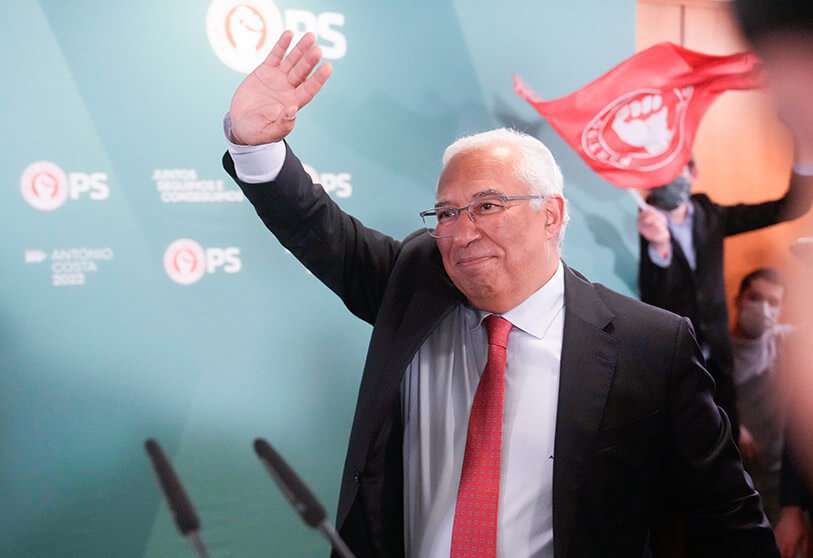Portugal proves that absolute majorities are still possible

Francis Fukuyama decreed "the end of history" after Ronald Reagan ended the Cold War with the defeat of the Soviet Union and communism. Quite a prophet the famous American professor. There has also been a proliferation in recent years of those who have decreed urbi et orbe not only the end of the two-party system but also the end of absolute majorities, both in Europe as a whole and especially in Spain.
Portugal's socialist Antonio Costa has just denied with his landslide victory what already seemed to have become an almost incontrovertible truth. He will be able to govern with no strings attached, having surpassed the threshold of 116 seats in the 230-seat Portuguese parliament. A result that, in addition to disproving the advocates of the atomisation, fragmentation and ungovernability of the legislative chambers, is a huge blow to the opinion polls, none of which were capable of predicting what has finally come about in Portugal.
To be on the safe side, the most cautious predicted a technical draw. The Socialist Party (PS) beat its conservative rival, which despite its name is the Social Democratic Party, by no less than 734,000 votes (41.6% to 27.8%). It is clear, then, that from now on, all kinds of predictors will have to sharpen their political ear and the kitchen of the polls if they want to regain credibility after such a huge setback.
Along with this conclusion, those of a political nature are not insignificant either. The first is for the extreme left, fond of tinkering with political matches and cans of petrol. The Bloco de Esquerda (BE) and the Portuguese Communist Party (PCP), allies of Costa's PS in the famous 'geringonça', had overturned the 2022 budget, leaving the president of the Republic, Marcelo Rebelo de Sousa, with no other option than to call early elections. Voters have blamed both for having prevented both the minimum wage hike and the strengthening of the ailing National Health System, undoubtedly the two issues to which the electorate is most sensitive, relentlessly shaken by the virulence of the virus and by its attack on the economy.

The Bloco, a transcript of the Spanish BNG, has gone from 19 seats to 5, its worst result since 2005, which puts it in sixth place among the parliamentary forces. Only one seat more, 6, was won by the PCP, which in these elections was in coalition with the Greens. Both will now oppose Costa on the left, leaving the socialist leader free to comfortably occupy the centre.
Opposing them, on the right, the conservatives of Rui Rio's PSD lost eight seats (from 79 to 71), which were shared between Chega's ultraconservatives, who won 12 seats, and the liberals, who won eight seats. It is worth mentioning, and it is not a minor thing, the disappearance of the hemicycle of the historic Social Democratic Center (CDS). This is the first time in half a century that it will not be present in Parliament, making its leader, Francisco Rodrigues dos Santos, the first political victim of the elections. It remains to be seen whether the leaders of the Bloco, Catarina Martins, and of the PCP, Jerónimo de Sousa, the other major losers in an electoral joust that had only one winner, Antonio Costa, the 60-year-old Lisbon lawyer with roots in the former colony of Goa, will also resign.
On the other side of the line, that is, in Spain, it can be assumed that both the President of the Government, Pedro Sánchez, his allies of the so-called Frankenstein coalition, the political parties of the opposition, the new constellation of formations of Empty Spain and the gurus of the opinion institutes, will be making calculations and speculations about the whims of history and anticipating the will of the voters, those who, as the motto of the elderly affirms in view of the difficulties of operating electronically with their banks, may be old but not stupid.

